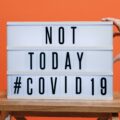It’s not easy to dress professionally and then confidently tell the interviewer that you’re an excellent fit for the company while you’re trembling inside.
If you know what to expect during the interview and what you want to focus on, your responses will be more robust. In addition, knowing that you’re prepared will give you more confidence and make you more composed throughout your interview.
Unfortunately, we can’t read minds. But I’ll give you the next best thing: a list of most commonly asked interview questions, along with some useful advice to answer them.
Tell Me About Yourself
This is the most common and tricky question that is asked in every interview board. Because they have your resume and cover letter, that should say plenty about yourself. Now you have to answer this question tactfully. So, you should start saying what’s not in there to grab their attention. Use an adjective to define your personality. The way you answer your first question can make or break your first impression.
Therefore, try to cover these three areas while answering,
- Start by discussing your current situation,
- Briefly summarize your previous experiences with key achievements,
- Finally, describe how you discovered the new job and why it is a good fit for you and your goals.
Why Should We Hire You?
To answer this question, first and foremost, read the Job description properly. Get to know, “What does the company need?”
Then, prepare your answer along with the skills they require. Start by saying you have those skills, and previously you have worked to improve those. So you’re a perfect fit for them.
Secondly, make a story of yourself. For example, how you’ve worked in the past, your challenges, and how you dealt with them.
Thirdly, What makes you different?
This is the crucial part that makes you different from the others waiting for the interview. So, you can tell them about your volunteer work, teamwork, and interest in learning something new.
What Do You Consider to Be Your Weaknesses?
Beyond identifying any major red flags, your interviewer would try to assess your self-awareness and honesty with this question. So, “I can’t fulfill a deadline to save my life” isn’t an option, neither is “Nothing, I am perfect!”
You should show a weakness that may also be regarded as a strength to answer this question. There are plenty of viable answers. Some answers will be appropriate for some occupations, while others will be inappropriate for others. Choose a suitable response that is appropriate for the position you are applying for.
What’s a time you disagree with a decision that was made at work? How did you deal with that?
Recruiters ask this question to see how you deal with various stakeholders and colleagues that hold differing viewpoints. Describe an occasion when you and your boss came to a mutually beneficial agreement to end a conflict.
It’s essential to explain what you gained from the experience. Also how it improved you both personally and professionally. You can use the STAR method to construct your answer. The STAR method ensures you include all essential pieces of the story- the Situation, Task, Action, and Result clearly and compellingly.
How Do You Deal With Pressure or Stressful Situations?
The best way to answer this question is to explain how you dealt with stress in the past. Avoid saying that you have never or only occasionally been stressed. Instead, formulate your answer in a way that acknowledges workplace stress and explains how you’ve dealt with it or even utilized it.
What Are Your Salary Expectations?
One of the most obvious questions recruiters ask during a job interview is about your payment expectations. Apparently, talking about money may be uncomfortable. However, you can reduce your discomfort by preparing ahead of time.
Prepare by researching what most employers in your area pay for this sort of employment. If possible, find out what this employer pays. PayScale, Salary.com, Glassdoor, LinkedIn, and Google are all excellent places to start your research.
Afterward, you can answer this question according to these suggestions-
- Provide a range;
- Include negotiation options;
- Deflect the question.
Where Do You See Yourself in the Next Five Years?
The answer to this question is mainly determined by where you are in your professional life. A person with five years of job experience will have different objectives than someone who has never worked before. This question is used to evaluate a candidate’s commitment to his or her professional life.
The sort of answer you want to provide is ambitious and reflects your passion for your career. And if the job isn’t always a one-way ticket to your goals? It’s okay to admit that you don’t know what the future holds. But you believe this experience will assist you in making such a decision.
Knowing what job interview questions you’ll be asked is crucial. You can prepare your answers ahead of time and feel confident in your responses when the pressure is on. But the most important part is to practice more and more.


















